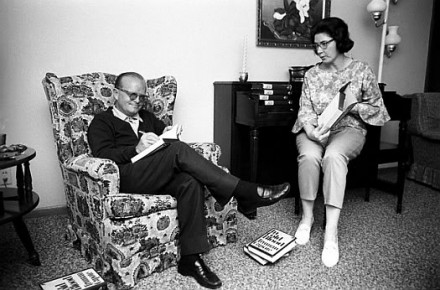Harper Lee and the Fake Persecution of Mewling Feminists
 I haven’t been following the latest round of controversy surrounding Harper Lee’s authorship of To Kill a Mockingbird; this isn’t even an area of hobby study of mine and so I choose not to make a fool of myself by wading into these waters. I will assume that Lee wrote To Kill a Mockingbird until someone comes forth with what I consider to be convincing evidence to the contrary, which I have not yet seen. Nonetheless, I am aware in some vague way that the controversy exists.
I haven’t been following the latest round of controversy surrounding Harper Lee’s authorship of To Kill a Mockingbird; this isn’t even an area of hobby study of mine and so I choose not to make a fool of myself by wading into these waters. I will assume that Lee wrote To Kill a Mockingbird until someone comes forth with what I consider to be convincing evidence to the contrary, which I have not yet seen. Nonetheless, I am aware in some vague way that the controversy exists.
The mere fact of this controversy is apparently causing some factually-challenged feminists to lose their minds. A fairly representative sample of the mewling in question is this piece by Glynnis MacNicol, which is making the rounds thanks to such luminaries as Sally Kohn. The central thesis of MacNicol’s piece is (seriously) that only women authors have the authorship of their literary works questioned:
These conversations have been on my mind quite a bit in the past few days as the tired old question “Did Harper Lee really write To Kill a Mockingbird?” rears its idiotic head again amid the furore over her new/old novel Go Set A Watchmen.
In an effort to bring the speculation – Harper Lee’s sister Alice once called it “the greatest lie ever told” – into the digital age, the Wall Street Journal asked two Polish literary scholars to use a computerised text-analysis tool to compare Go Set a Watchmen with To Kill a Mockingbird and In Cold Blood to see if there was any algorithmic support for these rumours.
I will save you the read and tell you there was not.
Here is a far better question: Why is it only women who are ever accused of not writing their own books? (Notwithstanding our current president; when I Googled to see if any men had suffered similar suspicions, the top results were articles questioning Barack Obama’s authorship of his own memoir.)
Let me preface what I’m about to say here by noting that I am not any sort of literary expert whatsoever. I just enjoy reading literature and tend to avoid the mind-numbingly banal articles about literature like the plague. I don’t think I ever took a literature course at all in college.
Yet, nonetheless, even I know enough about the history of literary criticism that I laughed aloud when I read this passage because of its demonstrable falsity. Off the top of my head, I was able to recall the raging and ongoing debate about the authorship of William Shakespeare’s plays, the fact that there are people who question Moses’ authorship of any portion of the Pentateuch for a living (to say nothing about the authorship of virtually all the Biblical books, all of which purport to be written by men), the controversy about the authorship of the ancilliary works of Kurt Vonnegut, the controversy that lingered for millenia about the authorship of certain works attributed to Aristotle, and so on and so forth. The basic rule of thumb, especially with respect to authors who are prolific, is that after you die people will immediately start to question whether you wrote everything you claim that you did.
Two things about MacNicol’s piece show how deliberately faked this particular form of persecution of women is – other than Lee, the primary author set forth as persecuted in this manner is Laura Ingalls Wilder – never mind that the folks who question Laura’s authorship of the Little House on the Prairie books attribute them to… another woman, to wit, Rose Wilder Lane.
The second is that MacNicol’s method for determining whether men are also frequently subjected to (especially posthumous) questions about the authorship of their works – using Google – is decidedly less satisfactory than actually knowing anything about literary history, or, you know, calling someone who does and asking them if you’re about to embarrass yourself in a major publication. But even given that error, MacNicol’s faulty and amateurish research method returned a plethora of results indicating that a prominent alleged male (indeed perhaps the most well known alleged male on the planet) has endured persistent (and valid) questions about the authorship of the book that catapulted him to worldwide prominence.
What does MacNicol do with this information, which tends to falsify her central thesis? She treats it as a piece of information that doesn’t matter because… because she put it in parentheses, I guess.
The only thing MacNicol actually notes that’s true pertains specifically to the dynamic between Lee and Truman Capote, and the questions that have arisen about Lee’s authorship of Mockingbird but not, to a large degree, about Capote’s In Cold Blood. Maybe this is because Lee was a woman, maybe this was because Capote was more well connected in the New York literary circles where these rumors tend to begin; I don’t know. What I do know is that the suggestion that this is a female/male problem generally appears to be yet another case of an ill informed feminist crying “wolf.”
http://www.redstate.com/2015/07/21/harper-lee-fake-persecution-mewling-feminists/

safe steriods
References:
http://migaplus.cn/